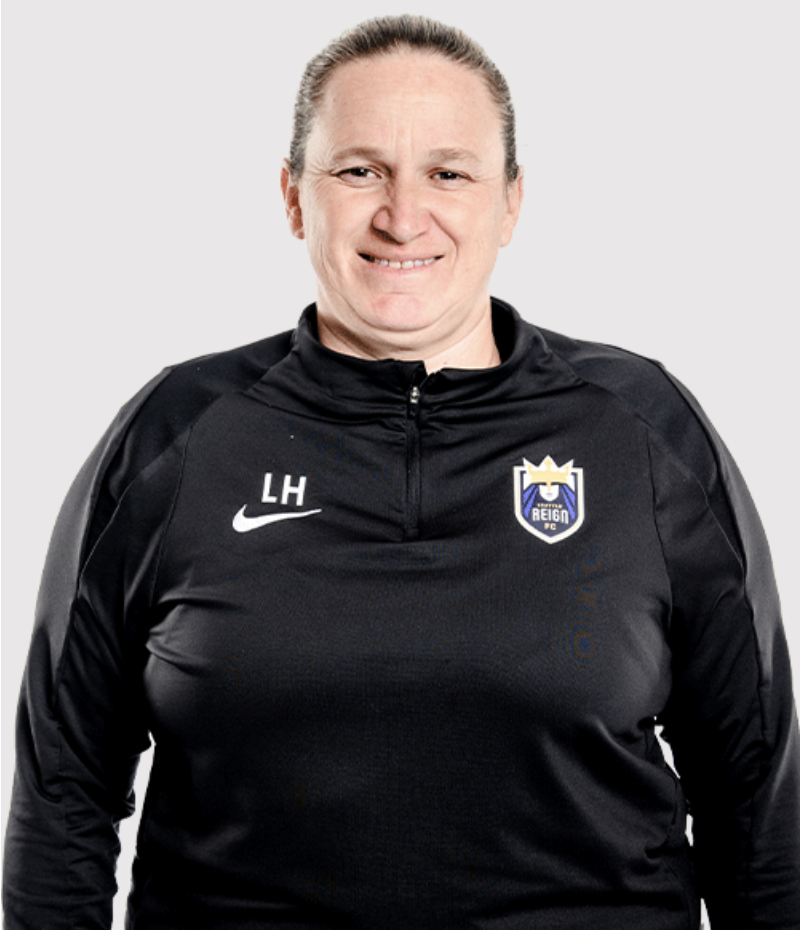AI Makes Its Mark on Professional Soccer: Seattle Reign FC Embraces ChatGPT for Tactical Innovation
In a groundbreaking development that highlights the expanding influence of artificial intelligence in professional sports, Seattle Reign FC head coach Laura Harvey revealed that ChatGPT played a significant role in developing a successful defensive strategy for her team. This remarkable intersection of cutting-edge technology and traditional sports coaching demonstrates how AI tools are transcending their conventional applications and making their way into unexpected domains, including the tactical aspects of professional soccer. Harvey, a three-time NWSL Coach of the Year, discovered an innovative approach to game planning through what began as simple curiosity about AI’s capabilities in understanding soccer strategies. Her willingness to explore and implement technology-driven insights represents a fascinating evolution in coaching methodology that could signal a new era in sports strategy development.
The journey began when Harvey, driven by curiosity, decided to test ChatGPT’s knowledge of soccer by asking various questions about her team. While initial broad inquiries such as “what is Seattle Reign’s identity?” yielded less compelling results, a more specific tactical question proved surprisingly valuable. When Harvey asked, “What formation should you play to beat NWSL teams?” the AI provided detailed formation recommendations for every team in the women’s professional soccer league. Particularly intriguing was its suggestion to employ a “back-five” defensive formation against two specific opponents—a strategy Harvey acknowledged she had limited experience implementing as a coach. Rather than dismissing this AI-generated advice, Harvey recognized its potential value and brought it to her coaching staff for further evaluation, demonstrating an open-minded approach to innovation that transcends traditional coaching boundaries.
What followed was a thorough analysis of the AI-suggested strategy by Harvey and her staff, who conducted a comprehensive evaluation of how this tactical shift might benefit the team against certain opponents. The coaching team’s expertise came into play as they adapted and refined the AI suggestion to fit their players’ strengths and the specific challenges posed by their upcoming opponents. This collaborative approach—combining the computational pattern recognition of AI with the human expertise and intuitive understanding of experienced coaches—resulted in a tactical innovation that proved successful on the field. As Harvey herself confirmed, “We liked it. And it worked—we won the game.” While she didn’t specify which opponent they defeated using this strategy, she mentioned they were “really good,” suggesting the AI-inspired tactic had been tested against formidable competition.
The significance of this technological integration extends beyond a single victory. The Reign have incorporated this formation as a regular tactical option during matches, contributing to their improved performance this season. Currently ranked fourth in the NWSL heading into the playoffs, the team’s willingness to embrace AI-suggested strategies exemplifies how technology can enhance rather than replace human expertise in professional sports. Harvey was careful to note the limitations of the AI input, explaining that “It didn’t tell you how to play it, what to do in it or any of that stuff,” but rather provided a strategic starting point that “spurred me to look into it.” This nuanced understanding of AI’s role—as a catalyst for human innovation rather than a replacement for coaching expertise—represents a mature approach to technological integration in sports that preserves the essential human elements of leadership and decision-making.
This case study from Seattle Reign FC reflects a broader trend across various industries where professionals are increasingly utilizing AI tools like ChatGPT as sophisticated sounding boards. These tools are becoming valued advisors that help explore scenarios, test strategies, and generate alternative approaches before professionals make final decisions. OpenAI’s research supports this evolution, finding that users increasingly rely on ChatGPT “as an advisor rather than only for task completion.” This shift in usage patterns suggests that AI’s most valuable contribution may not be in replacing human tasks but in augmenting human decision-making processes with additional perspectives and data-driven insights. In knowledge-intensive fields like sports coaching, where success often depends on the quality of strategic decisions, AI tools can provide valuable alternative viewpoints that human experts might otherwise overlook.
The partnership between AI and professional soccer coaching exemplified by Harvey’s experience suggests an emerging paradigm where technology and human expertise complement rather than compete with each other. As AI tools become more sophisticated and their adoption more widespread, we may see similar innovations across other sports and competitive domains. The key insight from Seattle Reign FC’s experience is that optimal results come from treating AI as one voice in a strategic conversation—a source of ideas to be evaluated, refined, and implemented through human judgment. This balanced approach preserves the irreplaceable aspects of human coaching—motivation, player relationships, and intuitive understanding of team dynamics—while leveraging AI’s ability to process vast amounts of data and identify patterns that might escape human notice. As sports continue to embrace technological innovation, this harmonious integration of artificial and human intelligence may become the new standard for competitive excellence.














